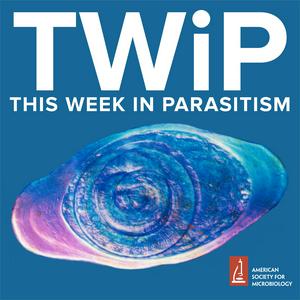TWiP solves the case about the man with positive Strongyloides serology who is waiting for a kidney transplant.
Hosts: Vincent Racaniello, Daniel Griffin, and Christina Naula
Subscribe (free): Apple Podcasts, Google Podcasts, RSS, email
Links for this episode
Join the MicrobeTV Discord server
Chronic strongyloidiasis (Australian Family Physician)
Hero: Gwendoleen Rees (Wikipedia)
TWiP study – information and survey
Letters read on TWiP 272
New Case
40 year old man travels to India, is only there for a week before he develops problems. Bloating, diarrhea. Weathers the storm. Returns to US. Stool sent for testing. Some interesting results. Comes back positive for Hymenolepis nana, Blastocystis hominis, Giardia intestinalis. Recommended he take four tablets. Flatulence. HIV negative. He ate food that were prepared in the home but also out. Delhi area.
Become a patron of TWiP
Send your questions and comments to
[email protected] Music by Ronald Jenkees
Dear TWiP listeners,
Have you ever wondered how TWiP shapes your understanding of science? We have! To find out more, Christina and the team are running a survey based study to learn more about how TWiP contributes to your scientific literacy and trust in science. Listen to the segment in this episode (TWiP 267) where Christina discusses the study's aims and scope.
Anyone who listens to TWiP can participate. The survey is anonymous and we do not collect personal data that could identify you. There are no potential disadvantages or harms in taking part, other than using a few minutes of your time. You will receive no direct benefit from taking part in this study. However, the information that is collected during this study will give us a better understanding of who our listeners are, and why they choose to listen to TWiP. We can use this understanding to make TWiP even better!
This is an academic study and we aim to disseminate our findings to the wider public, including you. For example, we'll have a conversation about the findings on a future episode of TWiP, we plan conference presentations and publication in a relevant academic journal
The project has been reviewed and approved by the University of Glasgow College of Medical, Veterinary & Life Sciences Ethics Committee. Application 200250013
You can find the study, detailed participant information, and consent information here:
TWiP study – information and survey


